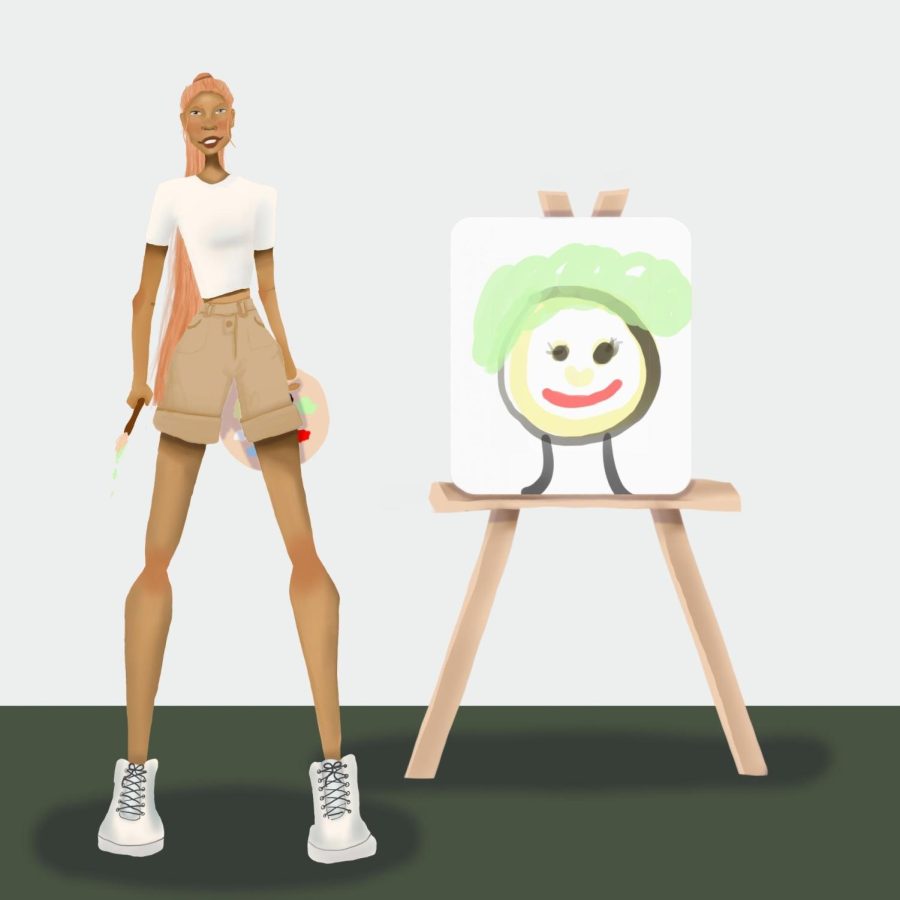Opinion | It’s okay to not be good at your hobby
March 23, 2022
In the hit television show “Friends,” Phoebe Buffay — the artist of the six friends — writes songs and sings at the local coffee shop during her free time.
Even though she finds little acclaim and success with her music, she continues throughout all 10 seasons of the show. It doesn’t matter that she’s not talented — she pursues her hobby because it brings her own joy and fulfillment.
I think we can learn a lot from Phoebe’s fearless pursuit of singing and songwriting, even if she is fictitious. Throughout our life, no matter our level of talent, we should partake in hobbies — and even try new ones.
To start trying new hobbies, we first have to get past the idea that we must monetize our hobbies for them to be worthy of our efforts.
The notion that our hobbies have to provide some financial benefit began in the 19th century when more people started partaking in activities outside of work. Soon, the ideas of the workplace followed people home, and production and work ethic were valued over enjoyment. Rather than provide relief from daily responsibilities, a hobby became another form of labor.
Even today, the idea that our hobbies must produce something of value for others prevails. As more people share businesses formed from their passions, such as on platforms like TikTok, it seems there is a narrative that we have to be talented enough that people want to pay us for our efforts in order to justify pursuing a hobby. But believing this — that we have to be good at our hobbies — is harmful as it prevents us from experiencing new activities.
On the whole, partaking in hobbies that interest us helps us find fulfillment and connectivity throughout our lifetime. When we’re children, hobbies teach us about the world, introduce us to new people and help us develop our social skills — potentially shaping the course of our lives from this formative stage.
When we get older, hobbies can connect us to our community by helping us meet people who like the same things as us. Especially in an age where young adults are moving further from their families, forging community connections are more important than ever. Feeling connected to our community can spark inspiration that can spill over to our familial and professional life.
In fact, college is a great place to start practicing this idea of trying new hobbies. There’s a club for almost anything, giving students a place to start learning what interests them.
I recently started some hobby searching of my own and joined Pitt’s intramural lacrosse club — Chicks with Sticks. The last time I played lacrosse was in middle school — which was probably clear to everyone when I was the only one who arrived without a stick. Still, I was welcomed. Throughout the drills and games it became more evident that it had been at least seven years since I last picked up a lacrosse stick, but in the end, I was glad I tried something outside of my comfort zone.
Besides this social benefit, participating in hobbies can improve our mental and physical health. A 2017 study published in The Society of Behavioral Medicine reveals that pursuing our interests contributes to our better overall health — better mood, less stress and a lower heart rate.
Along with these general advantages, specific hobbies provide a distinct benefit. For example, a study conducted in 2015 shows that participants released less cortisol — a stress hormone — after they sang, proving that singing can help relieve our stress. Never in this study does it say that we have to be good at singing, but we just have to participate to get this benefit. Similarly, running helps our bodies in many ways, such as keeping our muscles strong and improving joint health. To get the benefits, we don’t need to run fast, rather we need to embrace the activity instead.
Pursuing our hobbies gives us a break from the responsibilities of everyday life and allows us to develop skills and knowledge that we would not have otherwise. And to achieve these benefits, we do not have to be skilled, but instead just engage in something solely because it brings us joy.
Talia Spillerman writes about anything and everything. Write to her at [email protected].








